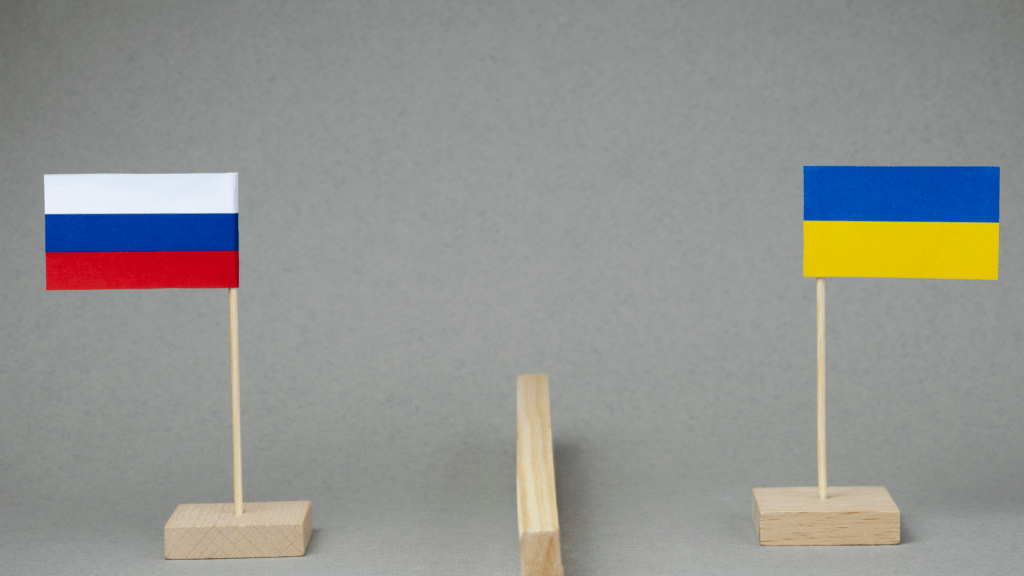Can the Kursk battle give an impetus to peace talks? – Pavel K. Baev

The long war in Ukraine has taken a new turn at the start of August, and its new trajectory remains fluid and open to strategic interpretations. The incursion of Ukrainian brigades into Russia’s Kursk region took by surprise most experts and has altered the narrative of the war much stronger than the material balance of forces. The Russian high command mistook it for just another small-scale raid, so President Vladimir Putin ordered to terminate that “provocation” by the means of a counter-terrorist operation. As August – often perceived as a month of misfortune in the Russian political calendar – draws to an end, it becomes obvious that the mixed bag of reinforcements gathered by the Russian General Staff cannot expel the inspired Ukrainian troops from the captured territory amounting to about 5% of the Kursk region. What remains obscure, however, is the strategic purpose of the operation.
The key question is whether the new reality on the battlefields can stimulate the two parties to the protracted armed conflict to engage in serious talks on ending it. The immediate answer is shaped primarily by Putin’s reaction, which amounts to downplaying the impact of Ukrainian offensive and to angry rejection of any new peace talks. Neither message has much convincing power, but at least the pretense that nothing out of ordinary is happening brings less risks of escalation than a new resort to nuclear brinksmanship. President Volodymyr Zelensky has exploited this uncharacteristic timidity of Putin’s response to a humiliating defeat for reinforcing his argument on the fake “red lines” in Russian strategy. As worries in the West about an over-reaction in the Kremlin dissipate, Kyiv gains permissions for using long-range weapon systems in support of further attacks.
Gaining new diplomatic ground in the complex maneuvering on the possible roads to peace is, however, an even harder task for Ukraine than capturing more Russian territory. Expectations in Kyiv that Moscow would abandon its maximalist claims and recon with the reality of impossibility of negotiating from a position of strength are much increased but still remain far-fetched. Zelensky is encouraged by the success of the peace summit in Switzerland in mid-June and seeks to sustain this momentum for organizing the second one by the end of the year. One crucial question in this regard is about China’s readiness to partake, even if only as an observer. Ukraine’s Foreign Minister Dmytro Kuleba embarked on the mission of securing such participation paying a visit to Beijing in late July. President Xi Jinping remains uncommitted and Prime Minister Li Qiang visiting Moscow in mid-August didn’t mention the Ukraine war once, while the coverage of the Kursk battle in Chinese media has remained muted.
No less central is the question about India’s possible contribution to the peace process shaped by the contradictory dynamics in its traditionally cordial relations with Russia: the import of arms has plummeted, but the purchase of oil has significantly increased. Prime Minister Narendra Modi paid a high-profile visit to Moscow in early July and an even more profiled visit to Kyiv last week. Ukrainian offensive into the Kursk region makes a difference between these two visits, and Modi apparently believes that some new opportunities for mediation have appeared. Zelensky is keen to encourage such expectations and offers India the privilege of hosting the second peace summit.
Russia remains firm set against exploring peace prospects in the format designed by Zelensky, and India quite probably will take this attitude into account and opt for a “neutral” mode of engagement. Whatever the timing and the location of the second summit, every particular opportunity for managing the intensity of war needs to be cultivated. For once, the pattern of exchange of prisoners of war can be expanded, as the families of hundreds of Russian conscripts captured in the Kursk battle are keen to see them home. The first such exchange was reported on August 24, with 115 soldiers on each side.
Ukraine signals interest in negotiating particular agreements broadly modeled on the “grain deal” in the Black Sea arranged in July 2022, with Turkey playing the key mediating role. That initiative was broken by Moscow in July 2023, but a mode of maritime de-conflicting has gradually emerged, so that the “shadow fleet” of Russian tankers needs no convoys for protection to and from Novorossiysk, while grain ships reach Odesa without interference. How this model could be applied to hostilities on land is entirely unclear, but withdrawal of Russian troops from the Kharkiv region in exchange for Ukrainian retreat from the Kursk region is hardly a plausible proposition because only two small footholds remain under Russian control after the failed spring offensive. Perhaps a more promising option is relinquishing Russia’s control over the Zaporizhzhia nuclear power plant, captured in the first month of the war, which gives Moscow nothing but headaches and focuses international concerns.
One thing that is clear is the pronounced predisposition of Russian public to ending the war. Even before the Kursk debacle, a strong majority of Russians expressed preference for peace talks, and there has been nothing resembling a surge of patriotic feelings caused by the capture of Russian lands by foreign troops. Except for a noisy but miniscule milieu of militaristic bloggers, there is no pro-war lobby, and the only – but insurmountable – obstacle to compromises necessary for achieving progress in the peace process is Putin’s obsession with erasing the Ukrainian state from the map of Europe. The Kursk offensive is a daring gamble for Ukraine, but it has exposed the fragility of Putin’s plans and made his grasp on power slippery. The full magnitude of the political resonance is hidden by the fog of war, but it may turn out that the Ukrainian guns of August have blasted open the road to a just and sustainable peace.

Pavel K. Baev, Dr., Peace Research Institute, Oslo (PRIO)
Dr. Pavel K. Baev is a Research Professor at the Peace Research Institute, Oslo (PRIO). He is also Senior Non-Resident Fellow at the Center for the U.S. and Europe at the Brookings Institution (Washington D.C.), Senior Associate Researcher at the Institut Français des Relations Internationales(IFRI, Paris), and Senior Associate Research Fellow at the Italian Institute for International Political Studies (ISPI, Milan). His research interests include the transformation of the Russian military, the energy and security dimensions of the Russian-European relations, Russia’s Arctic policy, Russia-China partnership, post-Soviet conflict management in the Caucasus and the Caspian Basin, and Russia’s Middle East policy, which is supported by the Norwegian Foreign Ministry. He writes a weekly column in Eurasia Daily Monitor.
To cite this work: Pavel K. Baev, “Can the Kursk battle give an impetus to peace talks?”, Panorama, Online, 26 August 2024. https://www.uikpanorama.com/blog/2024/08/26/kursk-pkb/
Copyright@UIKPanorama. All on-line and print rights reserved. Opinions expressed in works published by the Panorama belongs to the authors alone unless otherwise stated, and do not imply endorsement by the IRCT, Global Academy, or the Editors/Editorial Board of Panorama.